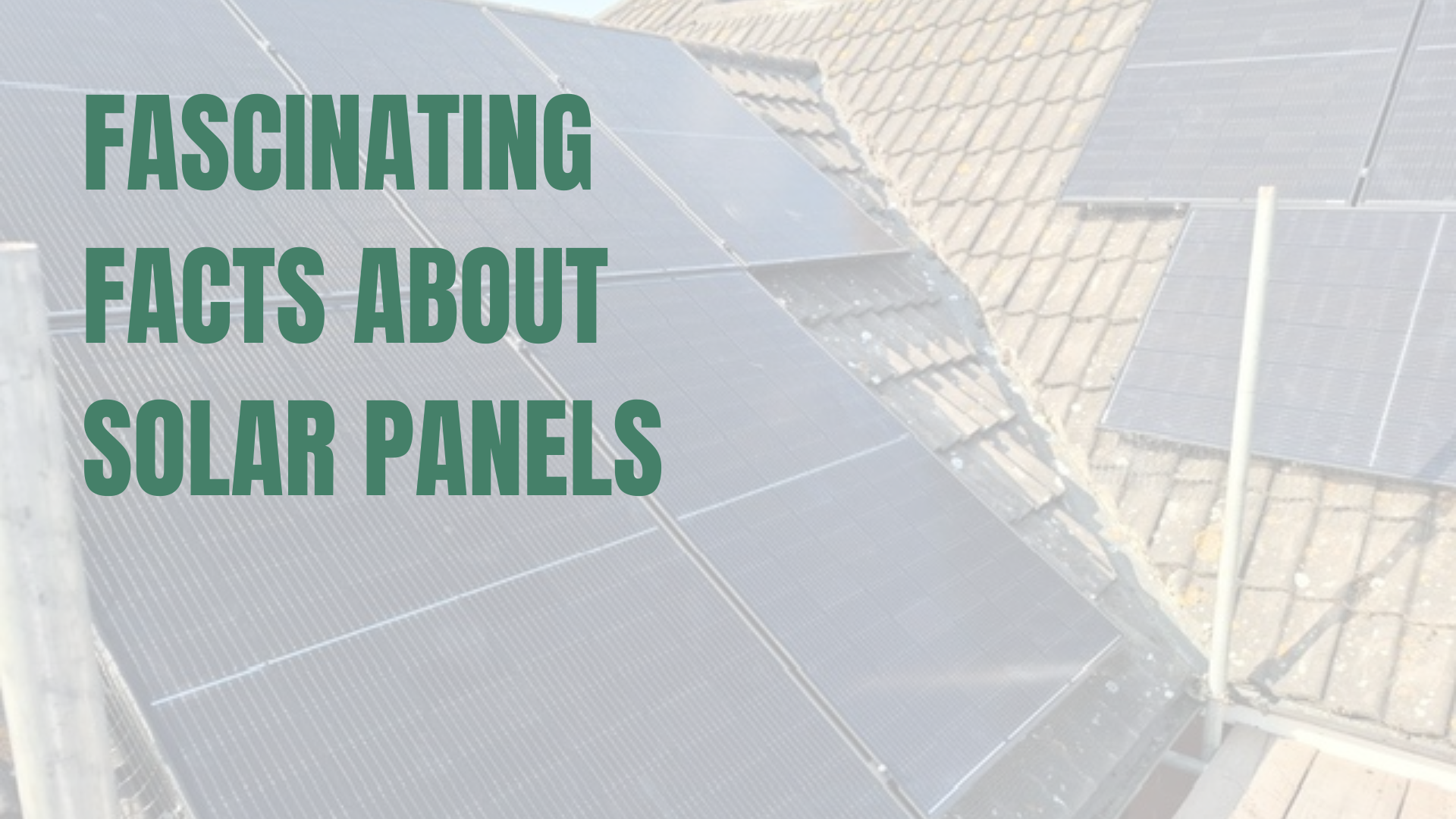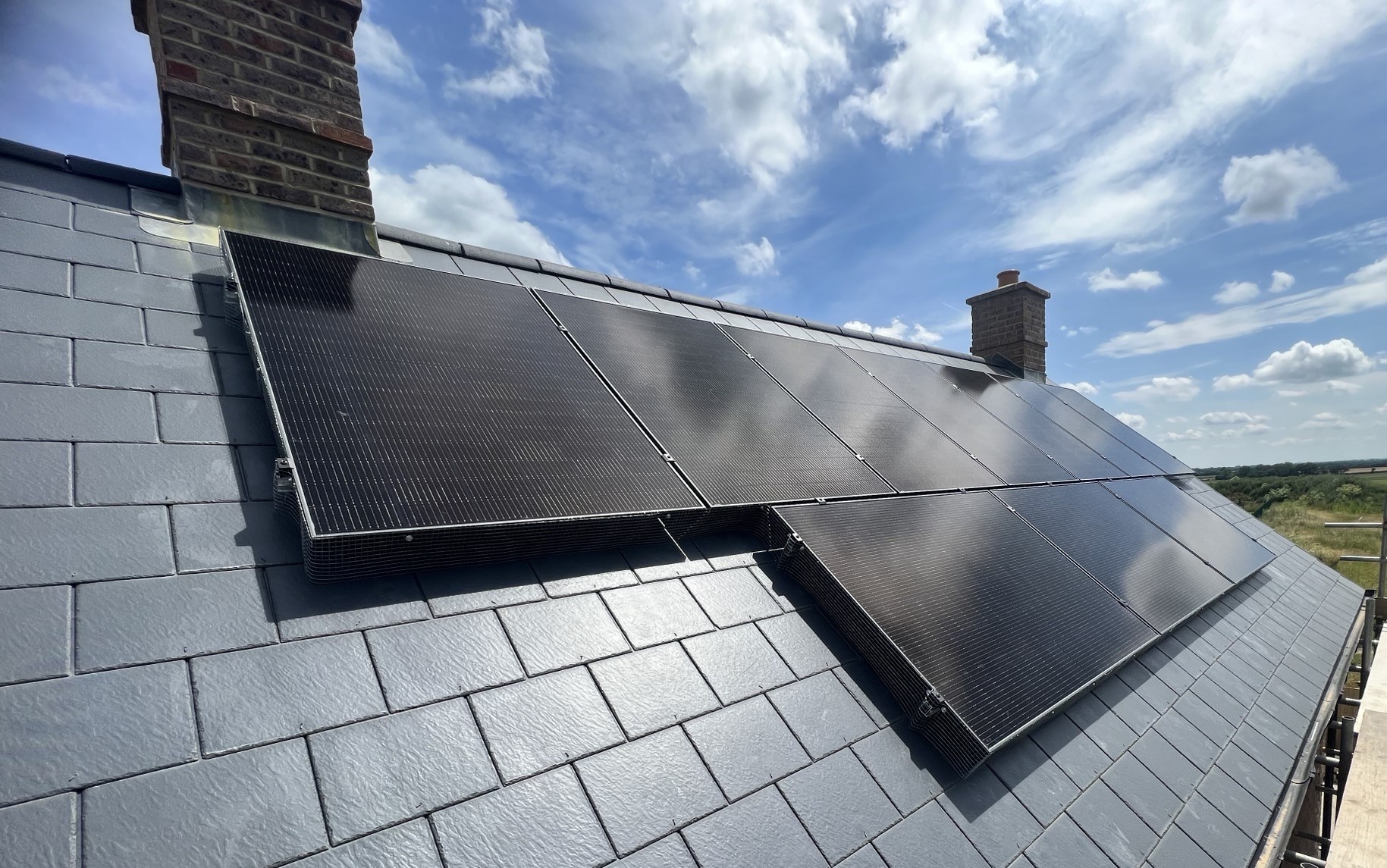Solar panels are more popular than ever, but how much do you really know about them? Since SolarTherm UK started installing solar panels over 15 years ago, technology has developed, efficiency has improved, solar has become more affordable and energy prices have increased. On top of that there’s an increased awareness of climate change, making solar a top choice for homeowners and businesses across the South East.
Solar Technology has been Around for over 180 Years
The photovoltaic (PV) effect, the principle behind solar energy, was discovered in 1839 by French scientist Edmond Becquerel, however, it wasn’t until 1883 that the first functional solar panel was built. Charles Fritts achieved a modest efficiency of around 1% compared to today’s modern solar panels achieving efficiency rates over 22%. Read about the history of solar power here.
Solar Panels are More Popular than Ever
Over 1.5 million homes now have solar panels installed. Solar energy is quickly becoming the go-to choice for homeowners looking to reduce energy bills. A correctly designed solar PV system can save you up to 70% on your energy bills. With the Government’s plans to be Net Zero by 2050 and have 9 million solar installations by 2030, it’s clear solar energy is here to stay.
Prices Have Dropped Dramatically
The cost of solar panels has fallen by over 80% since 2015. A typical solar installation for a three bedroom home can now cost around £7,000 far less than the £10,000 minimum just 2 years ago in 2023.
Efficiency Keeps Improving
Modern solar panels are not only cheaper, they’re more efficient than ever. Top solar panels can now convert over 22% of sunlight into usable electricity. Solar panel manufacturers and researchers are continuing to push the boundaries with experimental panels in labs reaching as high as 47% efficiency.
The Industry is Constantly Innovating
While monocrystalline and polycrystalline panels are still the most popular solar panels available, thin-film solar panels are growing in popularity due to their expansive ways it can be used. The variety of solar technology also continues to increase with recently releases such as solar tiles to replace your roof, transparent panels for windows on commercial properties and bifacial panels perfect for ground mounted arrays. Perovskite and quantum dot panels, in their final stages of testing, will dramatically increase the efficiency of solar panels in the future when they are released to the market.
Solar Panels Work in All Climates
While solar panels work best on warm sunny days, they only require daylight to generate clean electricity, so even on cloudy days they can still produce enough electricity to reduce your reliance on expensive grid electricity.
Low Maintenance, High Reliability
Solar panels have no moving parts, making them extremely low-maintenance. Regular monitoring of your solar monitoring app will make you aware of any issues before they become costly repairs. Occasional cleaning of you panels to remove any stubborn dirt or debris and keeping trees cut back to reduce shading is the only maintenance that is required.
Tiny Carbon Footprint
Solar panels produce zero emissions during operation and most systems become carbon neutral after just three years of use. Solar energy is one of the cleanest ways to power your home.
Solar Energy is Going to Space
The European Space Agency and LONGi Green Energy are testing solar panels in orbit, with plans for future solar farms in space that can transmit power back to Earth.
Solar Energy is the Cheapest Electricity on the Planet
Solar power overtook gas as the cheapest source of electricity in 2021, with costs dropping by 88% since 2010. Fossil fuel prices are continuing to rise due to high import costs. See our dedicated article on rising fuel prices here.
Solar Can Work Alongside Agriculture
Solar panels don’t need to replace farmland. Farmers are increasingly using agrovoltaics, raising panels on stilts to allow crops and livestock to coexist beneath them. This dual-use approach maximises land efficiency and supports sustainable farming.
Solar Panels Could Power the World
Just 1.2% of the Sahara Desert could provide enough electricity to power the entire planet. While infrastructure and local ecosystems must be considered, the potential for solar energy is staggering.
Energy Storage is the Next Frontier
Solar energy isn’t available 24/7, meaning energy storage is essential for a 100% renewable grid. Only 3% of global capacity is currently stored, but expanding storage capacity could be the key to unlocking a reliable solar-powered world.
Summary
Solar panels are transforming the energy landscape. With costs falling, efficiency rising and innovations constantly emerging , now is the perfect time for homeowners and businesses in the UK to switch to solar.
At SolarTherm UK we’re proud to help make renewable energy accessible and affordable to all. Contact us today for a free bespoke design package, tailored to your property, usage and future energy needs. No hard sell, just honest, expert advice.
Your home. Your energy. Your future.





